How Appium helps in Mobile App Testing for Multiple OS
Since the last two decades, the world has experienced a major digital transformation and mobile applications being the most popular ones, have evolved abruptly due to constant customer demands. Various technological solutions were implemented to make mobile application testing simpler and efficient. Adaptability, flexibility, multipurpose, quality, and speed are the key attributes that every mobile-centric brand is focusing on. Hence all application-centric brands are looking for a UI Automation tool that is faster, qualitative, and multiple OS supporting platform so that all mobile devices with diverse OS can be tested in one platform. Appium is the most popular UI Automation framework supporting mobile app testing for multiple os devices. In this blog, we will define Appium and how it supports application testing for mobile devices with multiple OS.
What is Appium?
Appium is an open-source automation tool for testing native applications, mobile-web applications, and hybrid applications. You can perform Appium automation testing on both iOS and Android mobile devices as well as windows desktop using a web driver. You can write Appium scripts in all types of programming languages like C, PHP, Python, C#, Java, Ruby, JavaScript, etc.
Appium Architecture
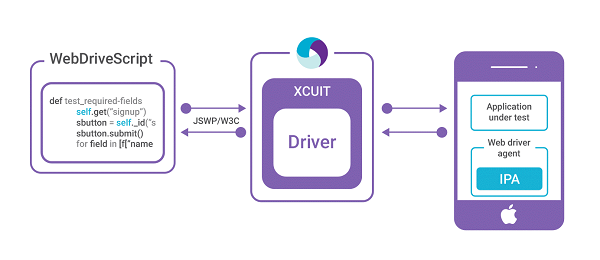
The figure shown is the simple architecture for Appium. This is also called client-server architecture. Here the script can be written in any programming language as it supports the selenium web driver library which supports all the programming languages. Once the script is ready, it is sent to the server and through the webdriver protocol also called the JSON wire protocol it is converted into HTTP REST request which can be understood by the Appium server. Once the client-server connection is established, the server interacts with the mobile applications. The server interacts with the native frameworks supported by specific mobile applications. For example, the Android application uses the UIAutomator2 framework and the iOS application uses the XCUIT framework. Hence, the Appium server interacts with these frameworks and runs the script to perform the automation. Similarly, the Appium interacts with multiple frameworks like UIAutomator2 and XCUIT to perform automation testing for multiple OS. So this is a brief description of the Appium Architecture and how it interacts with the multiple operating systems. Now let’s have a more detailed discussion on the interaction of Appium with different Operating Systems.
Appium interaction with iOS
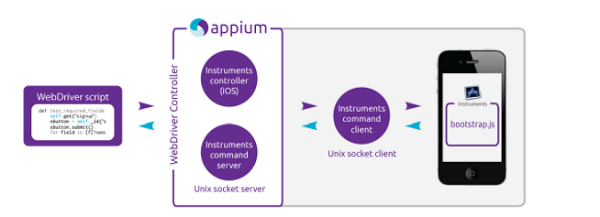
The command life cycle for the Appium - IOS interaction is as follows, the selenium webdriver picks the command and sends it to the Appium server in the form of JSON via HTTP request to the Appium Server. Appium server knows the automation context like the iOS and Android and sends this command to the Instruments command server which will wait for the Instruments command client (written in node.js) to pick it up and execute it in bootstrap.js within the iOS instrument's environment. So this is how Appium interacts with the iOS by exchanging the messages between the command client and the command server. This cycle keeps on going till all the commands get executed.
Appium interaction with Android
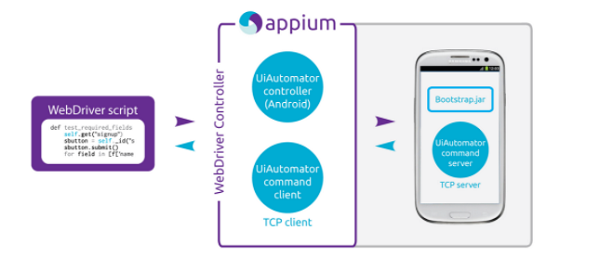
The situation is pretty similar in the case of Android where the webdriver proxies command to the UI automation. UI Automator is Android's native UI automation framework which supports running JUnit test cases directly into the device from the command line. It uses Java as a programming language but Appium will make it run from any of the WebDriver supported languages. Here the bootstrap.jar file spawns a TCP server and the TCP server resides inside the device and client is in the Appium process which is just opposite to the way it is in iOS.
Conclusion
Appium is one of the most popular UI automation frameworks as it supports mobile application testing for multiple OS. This great feature of Appium solves the major hurdle of cross-platform device testing that every mobile-centric organization suffers from. Appium being an open-source platform is like the cherry on the cake. These qualities make Appium highly recommended for developing high-performance mobile applications.





















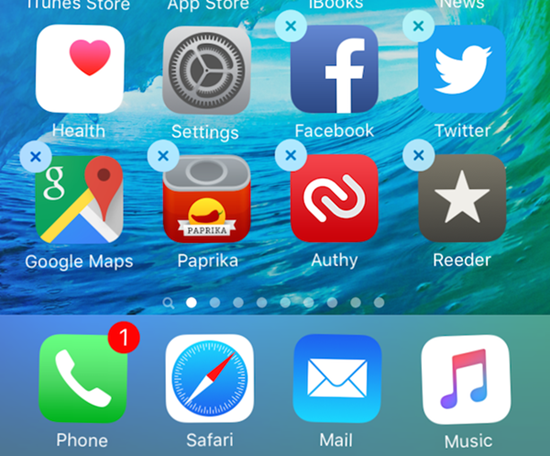

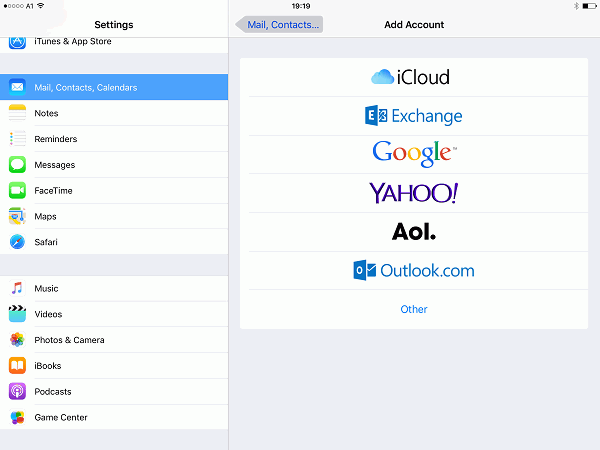
Doesn't this type of Mobile app testing reveal our code to the third party testing tool